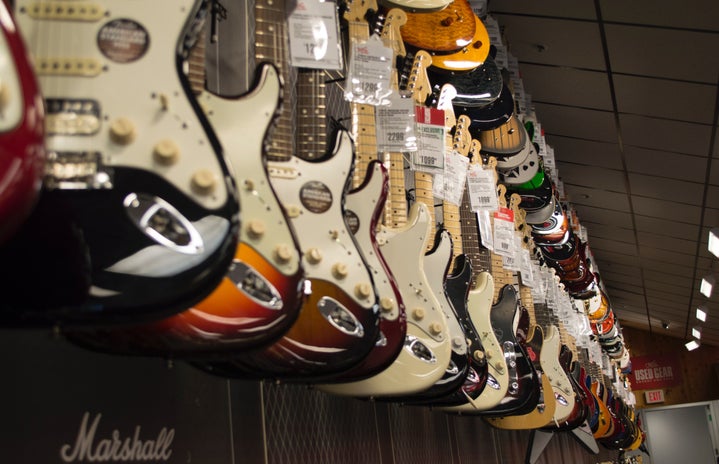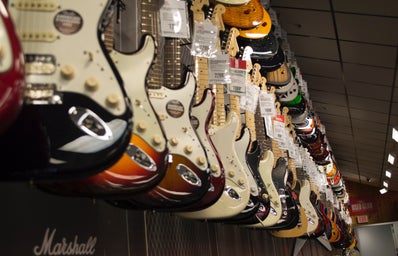Here I am sitting and listening to Common’s sixth studio album “Be.” All 11 tracks are meticulously and uniquely created to serve a meaningful purpose; with Common’s powerful lyrical ability, he aims to educate and inspire the masses about the societal problems that are plaguing his beloved community and people. Regardless of cultural and national background, as long as one understands the English tongue, it is hard not to identify the drive and purpose Common instills in this masterpiece of an album.
Here I am sitting again listening to the so-called ‘rappers’ or ‘hip hop artists’ battling it out in the recently famous Korean hip-hop talent show “Show Me The Money.” All these aspiring rap artists have skill. They can rhyme, they can ride the rhythm, and they can especially spit articulate string of words that do make them sound like gifted rappers; however, the problem that’s plaguing my Korean society lies on the content, or the lack of, of these rap artists. They dis others, boast about their own skills and uniqueness, and tell the world how big they’ll make it in the music industry. The sad and true fact about that show is that it embodies and represents what Korean hip-hop is about now in the Korean music industry. All flash, and no depth.
This new wave of hip-hop sensationalism has blinded the Korean masses about the artistic potential this medium of music could have for our society and community. Whether we admit to it or not, history’s hip-hop greats that are remembered countlessly throughout time were artists that rapped about not only their own problems, but the problems of their fellow human beings. They used the unique cadence of hip-hop beats and productions to reel any type of audience in, and enlighten them with profound knowledge about what’s really going on in our world. Korea, however, completely looks past this incredibly powerful ability hip-hop can have for our people. These ‘rappers’ are constantly shown throughout our media with their arguably very inappropriate appropriation of a culture that has deep historical roots of discrimination and violence. Koreans think it’s ‘cool’ to dress ‘thug,’ without even considering what their fashion choice represents. Koreans wear oversized American basketball team jerseys with baggy pants, yet at the same time rocking an American baseball team cap. They have heavy and flashy necklaces hanging down their necks, and try to embody a swagger that very closely represents the American hip-hop culture. All flash, and no depth.
There was a time when Korean hip-hop represented Korea. Drunken Tiger, Dynamic Duo, Epik High, and many more to name were the dominant hip-hop presence of Korea. These groups, around a decade ago, rapped about what they wanted to rap about. Some of these artists, being Korean-American and with a western mindset knew that they had an unspoken responsibility to broaden the minds of the Korean people. Their songs were gritty, cut throat, and especially catchy. What happened to the realness? What happened to the message? All the rap songs that are getting released through the perpetually unoriginal and methodic KPOP industry is very self-centered, overused, and downright ridiculous. This renovated Korean hip-hop industry represents selfishness and perfectly strengthens my belief that Korea is predominantly a very hype-based society that is slipping further away from its own distinctive culture. All flash, and no depth.
This guy has obviously seen Straight Outta Compton 5 times
Koreans love to dress like black people, yet discriminate against them, neglect them, and avoid them. Koreans love to act like black people, yet know nothing about their culture and what they have to go through every single day in their own community. With this shameful double standard, the least the hip-hop community here could do is try their upmost best to utilize, as mentioned above, the powerful societal change and awareness hip-hop could provide. What predominant Korean hip-hop song by a famous hip-hop artist raps about the suicide and depression epidemic crippling the Korean youth and working class? Which of these generically catchy and obnoxious music videos show the struggle the homeless in Korea have to go through every day? Which tries to portray the encroachment of capitalism that forces us to forget about our old and weak? What I hope is that this fad-based Korean society does what it does best, and quickly gets over this superficial and plastic form of what’s supposed to be a great music genre.
I am not mentally equipped enough to be able to comprehend why Korea’s so reluctant to achieve Korean uniqueness. Maybe it’s our country’s history, which includes being invaded and taken over by different cultures. Maybe, like any other teenager, Korea is having an identity crisis and needs to really look deep inside it and find out what it really is and represents. The sad part, however, is that Korea’s not a teenager. It’s an intricate nation with deeply rooted problems and traditions. We as a country constantly fail to embody different cultural aspects for the better of the Korean population, as Korea is only interested in what the surface of these foreign cultural achievements have to offer to our superficial cravings. Just because our Korean language is instilled in to the hip-hop or KPOP lyrics, it does not make that musical field distinct in itself. What has to set us apart from any other musical industry will have to be the down to earth, and creative content our music has to offer, regardless of which language it translates to. Sadly, we are far from that stage of artistic creativity. The best we can hope for is that the Korean public gets fed up of only being exposed to the same type of generic content, and demand as a mass for Korean originality. For now, they are pipe dreams.
Same guy from the same music video sending some mixed messages about his ghetto-ness
I do believe it is possible. France’s DJ Mehdi was able to become an international powerhouse in the hip-hop community because his skill and content excelled from all of the rest. Japan’s Eccy and Kohh aim to rap about the core of Japanese problems, and tries to show the world and its own people about their societal flaws that a lot of people fail to notice. Korea has been occupied for a good portion of recent history. We are, in the end, relatively still a very young independent nation. I do have hope for the country I love. For now, however, it is seriously embarrassing and frankly p*ssing me off. All flash, and no depth.
(Source of pictures: https://www.facebook.com/KIMBOBBY1221/videos/954190474645056/?pnref=story)

